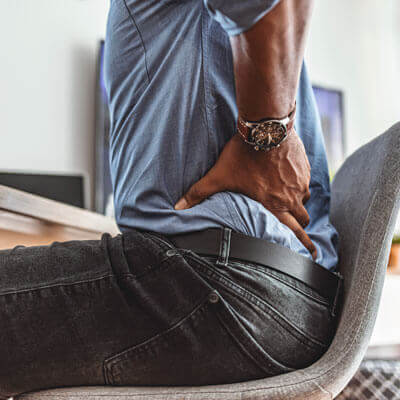Hip Degeneration in Bentleigh East

Low Back Pain That Won’t Go Away? It Might Be Your Hips
Most people associate hip problems with older age or past injuries, but many cases of hip degeneration creep up unnoticed. In Bentleigh East, we see plenty of patients who come in complaining about persistent low back pain, only to find that the real culprit is reduced mobility or early degenerative changes in the hip joint itself.
Your hips play a major role in how your spine, knees, and pelvis move. When they’re not functioning well, due to wear and tear, old trauma, or a congenital (birth) issue, it can lead to pain, stiffness, and decreased independence in daily life.
What Causes This Degeneration?
Several factors may contribute to hip wear:
- Past trauma or injury, even years ago
- A sedentary lifestyle with limited movement
- Chronic low back problems or pelvic imbalance
- Underlying congenital (birth) differences in hip structure
We also see a cultural shift: fewer people squat or move their hips through their full range of motion. Sitting at a desk all day, walking short distances, and avoiding stretching can all accelerate joint stiffness and loss of function.
What to Expect from Care
We begin with a hands-on assessment, including orthopaedic testing and a check of your range of motion. If needed, we’ll refer you for X-rays to understand the level of degeneration and rule out anything more significant.
If chiropractic is appropriate, we focus on improving motion through adjustments, targeted soft tissue therapy, and exercises that support hip stability and flexibility. Often, extensive work in the lower back and pelvis will also assist in improving hip motion. Many patients report that it is easier to walk, sleep on their side, or get up from low seats after just a few visits.
“Over my time in practice, I have seen many people with extensive hip issues that can be managed conservatively through chiropractic care. In some cases, the hip may be so worn that replacement is the right option,” Dr Anthony explains. “But even then, we’re here to guide patients through the process and support recovery after surgery.”
Symptoms That Might Signal You Have an Issue
People often overlook early signs of degeneration. Common symptoms include difficulty getting up from low chairs or squatting, discomfort when lying on your side, stiffness after standing or walking for any length of time, and ongoing low back or pelvic pain. In many cases, people are surprised to learn their hip is involved at all, which is why we always check their mobility when assessing spine and pelvic concerns.
How Soon Can I Expect Relief?
Some patients feel a noticeable difference within one to two weeks. With consistent care over three to six weeks, improvements often include better mobility, less pain, and increased confidence in day-to-day movements. Even small changes – like being able to lie on your side or walk longer – can make a big difference to quality of life.
Get Back to Moving with Confidence
Hip issues don’t need to slow you down. Let’s work together to improve mobility and reduce stiffness so that you can move with ease again.

